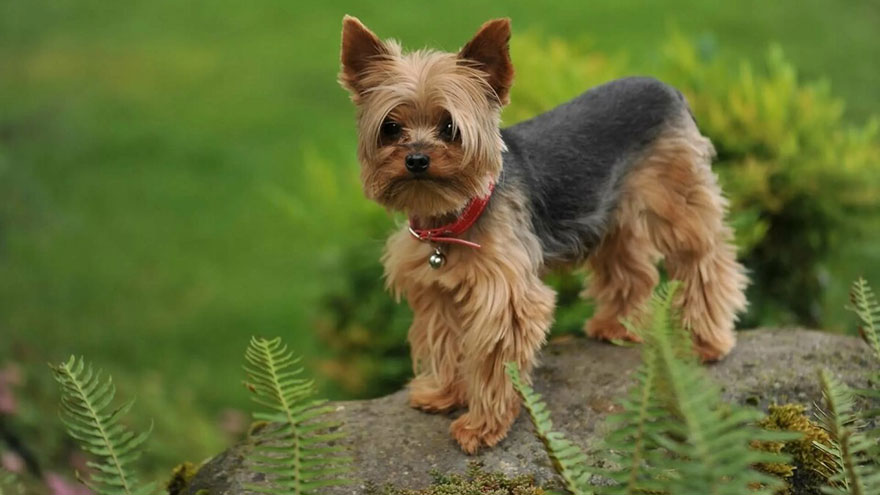Yorkshire Terrier Health Guide
Yorkshire Terriers are sometimes prone to tooth problems, even early tooth decay. Grooming instructions for the Yorkie often include details on brushing the teeth and other tooth care.
This breed may also suffer from digestion problems, making diet choices even more important than with some other dogs. Some owners and breeders have found the best results from feeding dry food along with small amounts of canned food.
This helps cleaning of the teeth on a daily basis.
Health Problems in the Yorkshire Terrier
Yorkshire Terriers may also be prone to spine and back problems, in addition to fragile bones. This is a toy breed, even tiny compared with many other dogs.
Though the Yorkie is generally health, it is important to pay attention to the bone structure of the dog to detect any problems before they become major health concerns. The Yorkie can be a prime candidate for broken bones due to accident or rough play.
Some toy breeds, including the Yorkshire Terrier, suffer from luxating patella, in which the kneecap actually moves from its normal position. A groove in the top of the femur bone allows the kneecap to slide up and down naturally when the leg moves. Nevertheless, with luxating patella, the ridges do not develop normally, allowing the kneecap to move out of the groove. The dog will generally try to walk with the leg held off the ground when this happens.
This can be a genetic defect and should be one of the conditions you talk about with a breeder when you are looking at puppies. A reputable breeder will not only be aware of the possibility of luxating patella in toy breeds, but will also take care to use breeding parents known to be free of this condition.
Surgery by a veterinary specialist may be necessary to correct this condition. With successful surgery, the pet can lead a normal, even active, life.

Tooth problems can be prevalent in some breeds more than others. The Yorkshire Terrier seems to be one breed in which early tooth decay can be a concern. Many Yorkie owners and organizations make a point to educate owners in this area of dog health.
Yorkshire Terrier owners should learn to scrape and otherwise clean the dog’s teeth on a weekly basis. In addition, the teeth should be given some professional attention on a consistent basis. Some veterinary specialists recommend antibacterial treatment to head off infections.
One other area for Yorkie owners to watch for is digestion problems. The Yorkshire Terrier should not be overfed. Some have been known to become a bit obese through improper feeding and lack of exercise.
Yorkies also have a tendency toward delicate digestive systems. Care should be taken with toy dogs such as the Yorkshire Terrier that bacterial diarrhea does not develop. This type of condition can quickly dehydrate a very small dog. If you see that your Yorkie is refusing to eat, is vomiting, or has significant changes in toilet habits, it would be best to seek veterinary advice immediately.
Yorkie owners may also want to be aware of protein-losing enteropathy. This condition means that the dog is losing protein through the intestine and these nutrients are not easily replaced. Protein losing enteropathy is an inherited immune-mediated disease of the intestines.
Many dogs do not show clinical signs of this disease until they are over the age of five. Abnormal fluid accumulation may occur, secondary to decreased protein levels in the blood. The Yorkshire Terrier is a small, beautiful dog that can be a wonderful pet.
However, proper care is vital, as is attention to details in health and diet.
Read More About Yorkshire Terrier
- Yorkshire Terrier Breed Information
- Yorkshire Terrier : 10 Most Common Questions
- Yorkshire Terrier Training Guide
- Owning A Yorkshire Terrier : Breeder Recommendations

